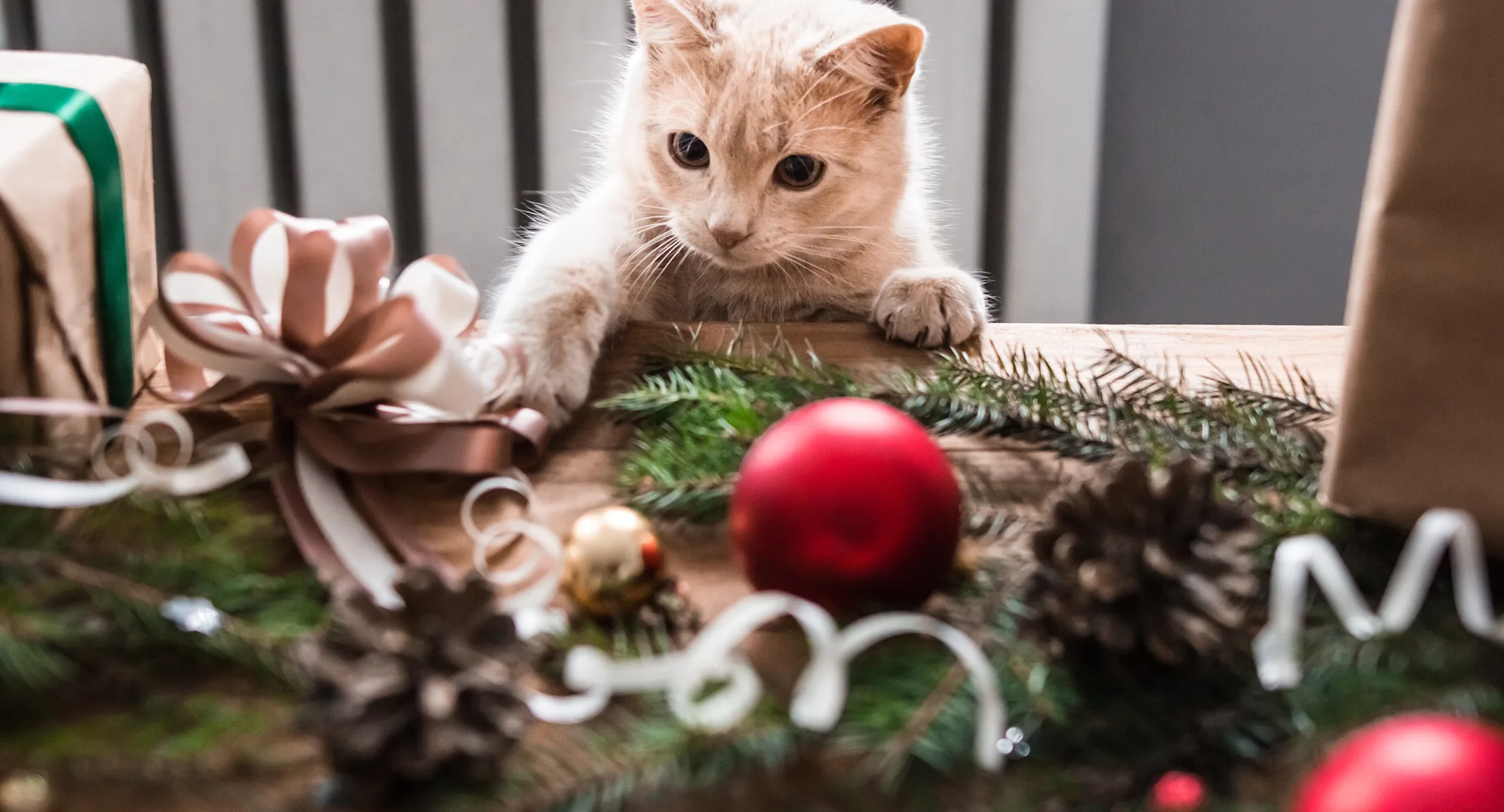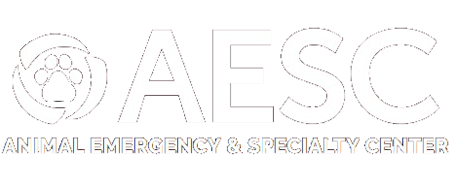Holiday Pet Safety
Pet Safety

This holiday season, your home is sure to be filled with fun and holiday cheer. It’s important to consider your pets’ safety when decorating and preparing holiday meals. Here is a list of holiday cautions for dogs and cats to keep in mind.
DECORATIONS
Many pets find holiday decorations very appealing. However, this can lead to various types of injuries.
Ornaments: Pets may think these are toys and ingest (eat) them and/ or choke on them. Glass ornaments can cause cuts on paws to the mouth and digestive tract, if swallowed. They can also get stuck in the GI tract and need surgical removal.
Tinsel/Ribbon/Garland/Wrapping Paper: Pets often find tinsel and ribbon quite intriguing. This is especially true for cats. If ingested, any of these items can get trapped in the intestines. This requires immediate veterinary attention and can be life-threatening if not addressed.
Potpourri: The festive scent can entice pets to investigate. Make sure containers are covered or not accessible. If ingested, potpourri can cause GI upset (vomiting and diarrhea).
Christmas Tree Water: Many pets love to drink the water in the tree stand. Be cautious if you use chemicals in the water to preserve the life of your tree as these can be harmful to your pets.
LIGHTS/CANDLES/ELECTRICAL CORDS
The glow of lights and candles add a warm touch to dark, wintry nights. Our furry friends, however, may see things differently.
Candles and Fireplaces: Any type of flame candle or fire can cause a burn risk to our furry friends.
Wires and Electrical Cords: Pets may think lights or cords are toys. They may chew them and experience an electrical shock or create a fire risk.
PRESENTS
Some holiday gifts may contain parts that can be hazardous if swallowed. Be aware of small toys, batteries and buttons.
HOLIDAY PLANTS
Holiday plants may be confused for food by our pets. Side effects include irritation, vomiting, and diarrhea more life-threatening conditions. Be especially cautious of the following if you choose to display them in your home:
Lilies (all varieties, including Easter Lily, Amaryllis): these can cause acute renal (kidney) failure in our feline friends (it is very important if your cat eats any type of Lily plant that you seek immediate veterinary care)
Mistletoe
Poinsettias
Holly
Pine tree needles and sap
Christmas Cactus
FOOD
There are two groups of food to avoid feeding your pet. One is high-fat foods which can lead to pancreatitis (inflammation of the pancreas) and can affect both dogs and cats. The other group is toxic foods which require an immediate visit to the veterinarian. Visit the Animal Poison Control at www.aspca.org for a more complete list of pet toxicities.
HIGH FAT FOODS
Turkey (dark meat)
Buttery/Fried Dishes
Stuffing (if cooked with butter or whole milk)
Gravy
Casseroles (depending on the fat content)
Certain Desserts
TOXIC FOODS
Uncooked bread dough
Onions
Raisins, grapes
Xylitol (a sugar substitute found in gum and candies)
Certain spices/oils (sage)
Chocolate (dark chocolate is more toxic than milk chocolate)
Avocado (seed only)
